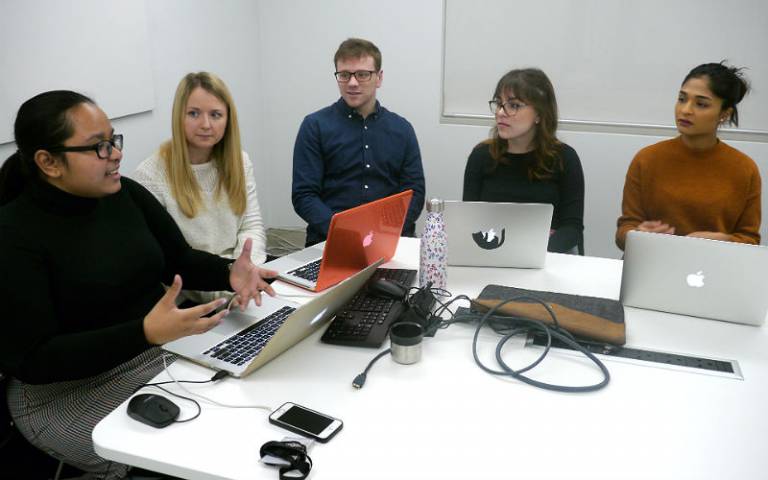Research by UCL law students supports international human rights protection work
27 February 2019
Through the UCL Public International Law Pro Bono Project, UCL students collaborate to help address pressing global challenges involving complex legal issues.

Through the UCL Public International Law Pro Bono Project (the Project), UCL law students are supporting inter-governmental and non-governmental organisations in their human rights protection work. Originally a PhD and LLM student project, now operating with significant Faculty support, the Project’s ethos is one of collaborative work – with participants working together and learning from each other. LLM (Master of Laws) students carry out research under the supervision of PhD Coordinators and the direction of UCL Laws academics, drafting reports, policy papers and legal research briefs for international partner organisations.
With its focus on practice-led research, the Project gives graduate students the opportunity to develop the knowledge and skills they will need to make important contributions to the international community. Students enhance their understanding of the international law subjects they are studying at UCL by gaining real world experience of the way in which the legal issues they study in the classroom are reflected in current practical and policy questions. Students are also exposed to important human rights protection stakeholders, giving them experience of potential career opportunities.
Students carry out the work in their own time, on a pro bono (voluntary) basis.
“It’s very refreshing to be given the opportunity to put the theory learned in class into real-world practice, especially for such an important cause. Working as a community of students and members of the Faculty has boosted my confidence and made me feel much more integrated into the Faculty." LLM Researcher Matt Peters
Supporting the resolution of real-world problems
The Project has done work for a number of inter-governmental and non-governmental organisations, including:
- The Inter-American Court of Human Rights. UCL students are producing cutting edge research on difficult legal issues put to them directly by the Judges of the Court (most recently in respect of the very controversial pardon of former President Alberto Fujimori in Peru).
- Redress. Our student researchers are assisting in the preparation of a report that Redress will submit to the UK Parliamentary Joint Committee on Human Rights, in respect of its Inquiry on the Human Rights Act. The work will also feed into a report that Redress is preparing for the UN Committee Against Torture on the UK’s compliance with its obligations under the Convention against Torture.
- The World Refugee Council. Our student researchers prepared a detailed report for its Executives, setting out innovative ways of unlocking the frozen assets of refugee-creating regimes, with a view to responding to the global refugee crisis, focusing on the international and domestic legal regimes governing assets frozen in the UK. The report will form the basis of the Council’s action plan in respect of the rules governing the treatment of such assets in the UK, both in lobbying Parliament and the UN Security Council.
“My involvement as a Coordinator has been a rewarding experience. The collegial and constructive environment in which the Project operates has allowed me to enhance my knowledge of the law and to develop the skills required to supervise research projects whilst contributing to the work of various organisations in the pursuit of protecting and promoting human rights." PhD Coordinator Niko Pavlopoulos.
PhD Coordinator Ed Robinson highlighted the Connected Curriculum benefits for the Project Coordinators:
“My PhD research is mainly focused on international human rights law and I also teach it to LLM students. Working on the Project with other students and Faculty has been a fantastic way to teach and learn about my topic outside the classroom. It has offered a rare chance both to get practical experience and to help others develop their skills in this field, working for some really exciting non-governmental and inter-governmental organisations on projects that will make a difference.”
Olga Thomas, Vice Dean (Education) Laws, sums up the benefits of the Project:
“The project has in a real sense created a community of scholars including both staff and students, engaging collectively in research and enquiry-based activities and producing expert research and advice to international organisations. This is innovative for law, the study of which can often be a singular and insular process.”
 Close
Close

